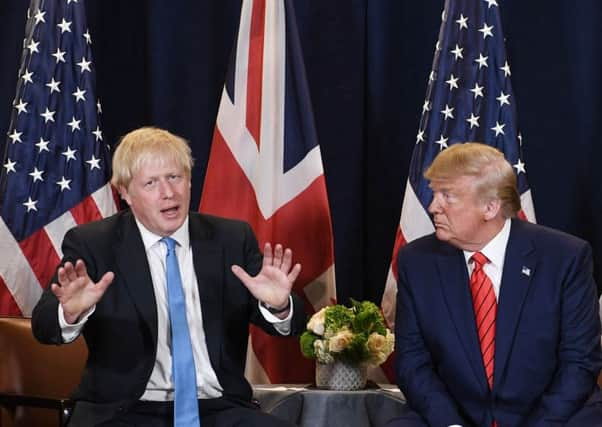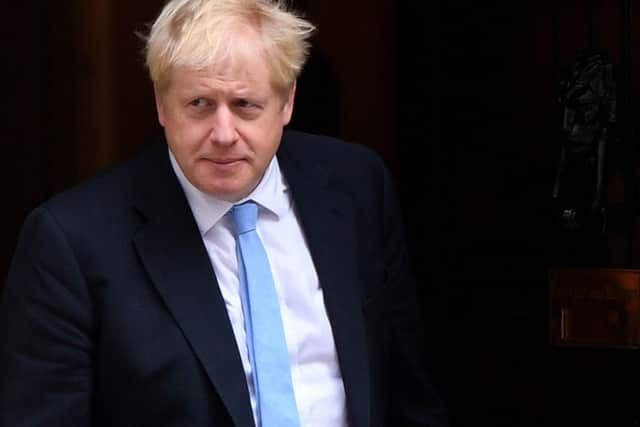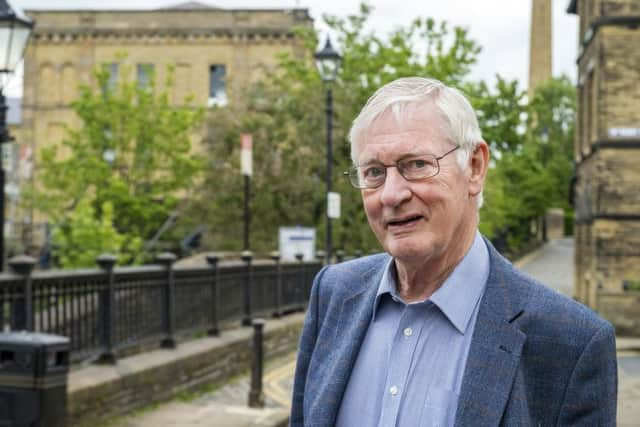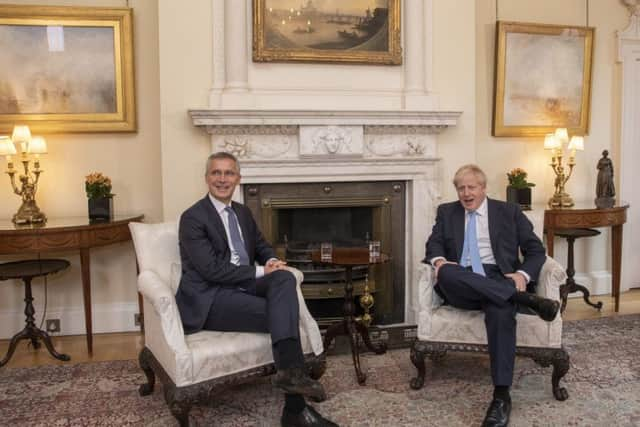Boris Johnson’s ‘global Britain’ will look more like ‘little England’ after Brexit and here’s why – William Wallace


British influence in the world has been amplified because we spoke as a leading member of a European caucus of nearly 30 states, working together with the UN, in other multilateral organisations and in negotiations over regional conflicts.
Advertisement
Hide AdAdvertisement
Hide AdA British foreign policy without European co-operation at its heart is like a polo: it has a hole in its centre.


Leaving the EU takes away Churchill’s European pillar and takes it away at a time when the ‘special relationship’ with the USA looks to be in more doubt than at any point since its creation in the Second World War, with an American President who has no truck with myths about the Anglosphere or the special virtues of the English-speaking peoples.
The Commonwealth network remains an asset to the UK, but we should not exaggerate how far it enables us to punch above our weight. Yes, many Australians and New Zealanders feel a continuing affinity with Britain but there are limits to how far they will offer us trade out of family sentiment.
Advertisement
Hide AdAdvertisement
Hide Ad

Liam Fox and other Eurosceptics expected India to welcome freer trade with Britain in return for supposed fond memories of the past benefits of British imperial rule, but the Indians’ interpretation of their national history, unsurprisingly, is different from ours. They will have noticed the recent neglect of the Indian role in the First World War in how we commemorated the centenary of that conflict. There was not much evidence of British gratitude for the major Indian contribution.
When Boris Johnson was Foreign Secretary he promised, in a rambling speech, that the new global Britain would return our forces east of Suez. He spoke of British ships passing through the Malacca Strait to patrol the South China Sea, as if we still had a massive Navy which could intimidate the Chinese and partner the United States on the other side of the globe.
He referred to Diego Garcia, in the middle of the Indian Ocean, as “a major British base”, although it is actually a major US base, with somewhere between 10 and 20 UK personnel to maintain a British presence, and he spoke of expanding our presence in the Persian Gulf, without explaining where we would find the ships or men or what would be the strategic rationale for doing so. It was wonderful stuff for a newspaper column, but it was deeply irresponsible for a Foreign Secretary to conjure it up when he had not the faintest idea of how to put such a proposal into practice.
If the Government are to fulfil their promise to place Britain “at the forefront of efforts to solve the most complex international security issues … alongside international partners”, they would be actively engaged in multilateral diplomacy on the overlapping conflicts between Syria, Turkey, the Kurds, Iran, Saudi Arabia, the Emirates and Yemen.
Advertisement
Hide AdAdvertisement
Hide Ad

Instead, the Conservatives’ most experienced Middle East Minister, Alistair Burt, has had the Whip withdrawn and will be standing down at the forthcoming election. We are withdrawing from ongoing consultations with our European partners on Middle East issues, which is the opposite of demonstrating that we are a “strong and reliable neighbour”, so we are left to cope with the contradictions of American foreign policy towards the region – withdrawing forces from Iraq and sending extra forces to Saudi Arabia.
The Prime Minister’s determination to negotiate a looser future relationship with the EU than even Theresa May envisaged means that we will lack the mutual trust or the institutional links to maintain a partnership with our neighbours in foreign policy. We will therefore be dependent on the United States as our global partner, as the United States becomes a less reliable partner.
The Government have only just realised that a US-UK trade agreement would not get through the US Congress. They are still in denial that their repeated promises of freer global trade have come up against the US Administration’s attack on the WTO and its developing trade conflicts with China and the EU. The White House has even picked on Scotch whisky exports as a target for higher tariffs on the EU.
Boris Johnson’s global Britain looks like an empty phrase. We will have no close international partners and no strong and reliable neighbours whom we trust in a world facing a global recession, rising trade conflicts, violence across two continents and the threat of climate change. If the hard Brexit we are negotiating leads Scotland and Northern Ireland to drift away, we will find ourselves a little England, standing alone without friends or influence. Is that what Conservatives are willing to contemplate?
Lord Wallace of Saltaire is a Lib Dem peer. He spoke in the House of Lords debate on the Queen’s Speech – this is an edited version.